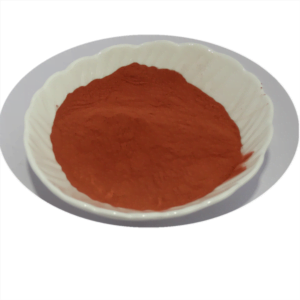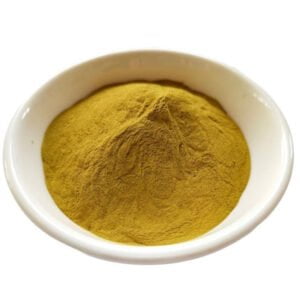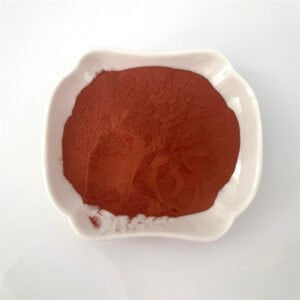The advantages of DMLS technology
Table of Contents
DMLS, or Direct Metal Laser Sintering, has become a game-changer in the world of metal additive manufacturing. Imagine a technology that can craft intricate, high-performance metal parts directly from a digital file, eliminating the need for traditional subtractive manufacturing methods. That’s the magic of DMLS. But what exactly makes DMLS so advantageous? Let’s delve into the world of metal powders, explore the key benefits of this revolutionary technology, and see how it’s transforming various industries.
Popular Metal Powders for DMLS
DMLS thrives on a diverse range of metal powders, each offering unique properties for specific applications. Here’s a closer look at some of the most commonly used metal powders in DMLS:
| Metal Powder | Composition | Properties | Applications |
|---|---|---|---|
| Stainless Steel 316L | 16-18% Chromium, 10-14% Nickel, 2-3% Molybdenum | Excellent corrosion resistance, high strength, biocompatible | Aerospace components, medical implants, chemical processing equipment |
| Titanium Ti6Al4V | 90% Titanium, 6% Aluminum, 4% Vanadium | High strength-to-weight ratio, good biocompatibility, excellent corrosion resistance | Aerospace parts, medical implants, sporting goods |
| Inconel 625 | Nickel-chromium alloy with additions of molybdenum, niobium, and iron | Exceptional high-temperature strength, resistance to oxidation and corrosion | Turbine components, heat exchangers, chemical processing equipment |
| Aluminum AlSi10Mg | Aluminum alloy with 10% Silicon and 0.5% Magnesium | Lightweight, good corrosion resistance, high strength | Automotive parts, aerospace components, heat sinks |
| Copper | 100% Copper | High thermal and electrical conductivity, good machinability | Heat exchangers, electrical components, electrodes |
| Tool Steel (H13) | Alloy steel with high levels of Chromium, Molybdenum, and Vanadium | High wear resistance, good hardenability | Molds, dies, cutting tools |
| Nickel (IN718) | Nickel-chromium alloy with additions of iron, niobium, and molybdenum | High strength, good creep resistance at elevated temperatures | Turbine blades, rocket engine components |
| Cobalt Chrome (CoCrMo) | Cobalt-chromium alloy with Molybdenum | High wear resistance, biocompatible | Joint replacements, dental implants |
| Gold | 100% Gold | High electrical conductivity, excellent corrosion resistance, biocompatible | Jewelry, electrical connectors, medical devices |
| Platinum | 100% Platinum | High melting point, excellent corrosion resistance, biocompatible | Catalytic converters, medical devices, jewelry |
This list just scratches the surface of the vast array of metal powders available for DMLS. The selection process hinges on the specific needs of the application. Some factors to consider include:
- Mechanical properties: Strength, ductility, fatigue resistance, and wear resistance are crucial for parts under stress.
- Thermal properties: Melting point, thermal conductivity, and coefficient of thermal expansion play a vital role in high-temperature applications.
- Corrosion resistance: The environment the part will be exposed to determines the need for corrosion-resistant powders.
- Biocompatibility: For medical implants, biocompatibility is paramount to ensure a safe interaction with the body.
Beyond this table, there’s a whole world of specialty metal powders being developed – from metal matrix composites for enhanced strength to functionally graded materials with tailored properties across different regions of the part. The possibilities are truly endless.
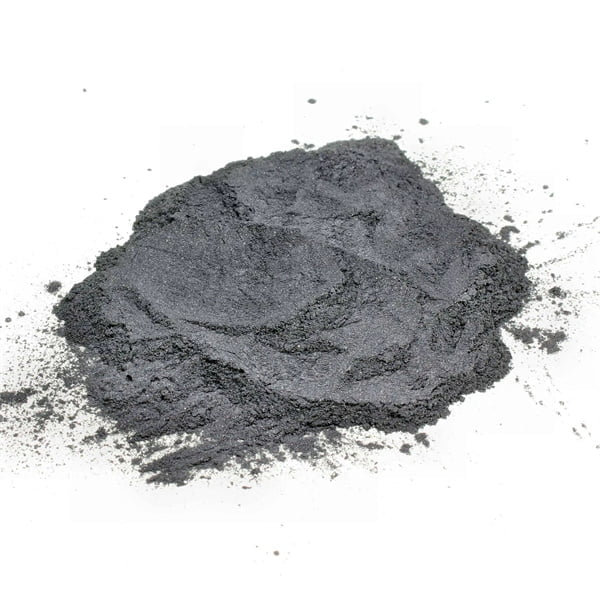
High Manufacturing Accuracy of DMLS Technology
One of the most captivating advantages of DMLS is its exceptional precision. Unlike traditional methods that involve material removal, DMLS builds parts layer by layer using a laser beam to selectively melt metal powder. This meticulous process allows for the creation of intricate geometries with micron-level accuracy.
Imagine the implications! DMLS can produce parts with internal channels, thin walls, and complex lattice structures that would be impossible or incredibly expensive to achieve with traditional techniques. This opens doors for lightweight yet robust designs in aerospace and automotive applications. In the medical field, DMLS can fabricate highly customized implants that perfectly match a patient’s anatomy, leading to improved surgical outcomes and faster recovery times.
Think of it like building with Lego on a microscopic scale, but instead of plastic bricks, you’re using metal particles to create incredibly detailed and functional objects.
Low Manufacturing Cost of DMLS Technology for Complex Parts
While DMLS machines themselves require a significant upfront investment, the technology can be surprisingly cost-effective for producing complex parts. Here’s why:
- Reduced Material Waste: Traditional subtractive manufacturing often involves significant material waste during machining processes. DMLS, on the other hand, uses only the necessary amount of metal powder, minimizing waste and reducing overall material costs.
- Consolidation of Parts: DMLS empowers designers to combine multiple components into a single, functionally optimized part. This eliminates the need for assembly processes, saving time and labor costs.
- Design Freedom and Reduced Need for Tooling: Complex geometries that would necessitate intricate tooling in traditional methods can be directly fabricated with DMLS. This eliminates the need for expensive tooling and shortens lead times.
However, it’s important to acknowledge that DMLS isn’t a one-size-fits-all solution. For simpler parts produced in high volumes, traditional methods might still be more cost-effective. But for intricate, low-volume production runs, DMLS shines.
Imagine a scenario where you need a custom gear with a unique internal structure. Traditional manufacturing would require creating specialized tools to machine the gear teeth and internal features. With DMLS, you can design the entire gear in a single CAD file and print it directly, eliminating the need for tooling and saving both time and money.
The Design Freedom of DMLS Technology is High
DMLS breaks the shackles of traditional design limitations. Here’s how:
- Unprecedented Geometries: DMLS allows for the creation of parts with complex internal channels, lattices, and overhanging features that are simply impossible with subtractive methods. This opens doors for innovative designs with improved performance and lighter weight.
- Functional Gradients: DMLS can fabricate parts with varying properties throughout their structure. Imagine a drill bit with a strong, wear-resistant tip transitioning to a more flexible shank for better shock absorption. DMLS can achieve this by using different metal powders or varying laser power levels within the same build.
- Customization and Personalization: DMLS excels at producing customized parts. Need a medical implant that perfectly matches a patient’s bone structure? Or a lightweight, high-strength bracket for a custom racing bike? DMLS can handle it with ease.
Think of DMLS as a sculptor’s dream come true. It grants the freedom to create intricate and functional forms that were previously confined to the realm of imagination.
Other Advantages of DMLS Technology
DMLS boasts a range of additional benefits that make it a compelling choice for various applications:
- Rapid Prototyping: DMLS enables the creation of functional prototypes quickly and iteratively, accelerating the product development process.
- Inventory Reduction: With the ability to produce parts on-demand, DMLS helps reduce the need for large inventories, minimizing storage costs and streamlining logistics.
- Lightweighting: DMLS-produced parts can be significantly lighter than traditionally manufactured counterparts, offering a major advantage in applications like aerospace and automotive where weight reduction is crucial for fuel efficiency.
Imagine a world where you can have a fully functional prototype of your new invention in your hands within days, not weeks. DMLS makes this a reality, fostering innovation and accelerating the path from concept to creation.
Cons of DMLS Technology
While DMLS offers a plethora of advantages, it’s essential to acknowledge its limitations as well:
- Limited Material Selection: Compared to traditional methods, DMLS currently has a somewhat restricted selection of printable metal powders. However, this is constantly expanding as new material development continues.
- Surface Roughness: DMLS-produced parts can exhibit a slightly rougher surface finish compared to machined components. Post-processing techniques like polishing or blasting can be used to achieve a smoother finish if necessary.
- Machine and Material Costs: As mentioned earlier, DMLS machines require a high upfront investment. Additionally, some metal powders can be more expensive than conventional materials.
Finding the right tool for the job is key. DMLS excels at producing complex, low-volume parts. But for high-volume production of simpler components, traditional methods might be more suitable.
Applications of DMLS Technology
DMLS is rapidly transforming a wide range of industries:
- Aerospace: DMLS is used to create lightweight, high-strength components for aircraft, satellites, and spacecraft.
- Automotive: The automotive industry leverages DMLS for custom parts, prototypes, and lightweight components for race cars and high-performance vehicles.
- Medical: DMLS plays a crucial role in creating customized medical implants, prosthetics, and surgical instruments.
- Consumer Goods: From custom jewelry and sporting goods to unique design elements, DMLS is finding its way into the consumer goods market. Imagine a world where you can personalize your phone case with intricate designs or have a unique, 3D-printed bicycle frame crafted to your exact specifications. DMLS opens doors for mass customization and on-demand manufacturing, potentially revolutionizing the way we interact with everyday objects.
- Energy: DMLS is used to create intricate components for heat exchangers, turbines, and other energy-related applications. The ability to fabricate complex geometries with high precision allows for the development of more efficient and powerful energy systems.
- Tooling: DMLS is being employed to produce custom jigs, fixtures, and other tooling elements. The rapid prototyping capabilities of DMLS enable faster design iterations and streamlined production processes within the tooling industry.
The applications of DMLS technology are constantly expanding as its capabilities become more widely known and accessible. We can expect to see DMLS play an even greater role in shaping the future of manufacturing across various sectors.
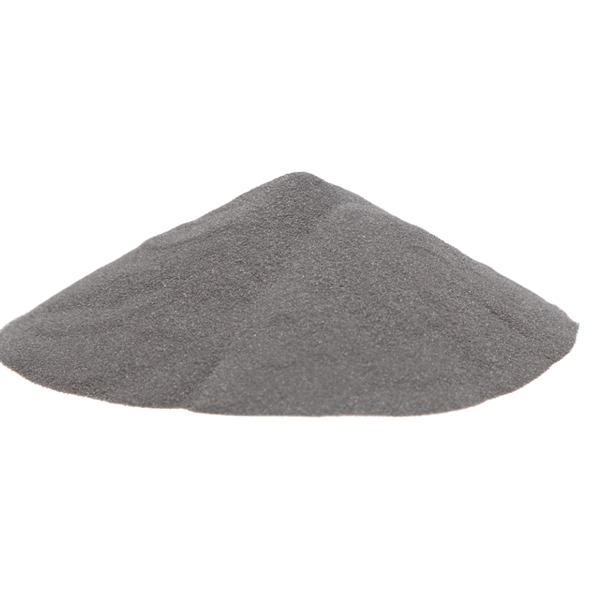
FAQ
Here are some frequently asked questions about DMLS technology, answered in a clear and concise format:
| Question | Answer |
|---|---|
| What is DMLS? | DMLS, or Direct Metal Laser Sintering, is an additive manufacturing technology that uses a laser beam to selectively melt metal powder layer by layer, creating complex three-dimensional objects from a digital file. |
| What are the benefits of DMLS? | DMLS offers numerous advantages, including high manufacturing accuracy, potential cost-effectiveness for complex parts, design freedom, rapid prototyping capabilities, and the ability to create lightweight components. |
| What are the limitations of DMLS? | DMLS currently has a limited selection of printable metal powders compared to traditional methods. Additionally, DMLS-produced parts can have a slightly rougher surface finish, and both machines and some materials can be expensive. |
| What are some applications of DMLS? | DMLS is used in various industries, including aerospace, automotive, medical, consumer goods, energy, and tooling. |
| Is DMLS right for my application? | The suitability of DMLS depends on your specific needs. DMLS excels at producing complex, low-volume parts. For simpler components produced in high volumes, traditional methods might be more cost-effective. |
DMLS technology is a powerful tool with the potential to revolutionize how we design and manufacture objects. By understanding its advantages, limitations, and various applications, you can make informed decisions about whether DMLS is the right fit for your next project.
In conclusion, DMLS technology stands as a testament to human ingenuity. Its ability to transform metal powder into intricate and functional objects paves the way for a future filled with innovation, design freedom, and a new era of manufacturing possibilities.
Share On
MET3DP Technology Co., LTD is a leading provider of additive manufacturing solutions headquartered in Qingdao, China. Our company specializes in 3D printing equipment and high-performance metal powders for industrial applications.
Inquiry to get best price and customized Solution for your business!
Related Articles
About Met3DP
Recent Update
Our Product
CONTACT US
Any questions? Send us message now! We’ll serve your request with a whole team after receiving your message.

Metal Powders for 3D Printing and Additive Manufacturing
COMPANY
PRODUCT
cONTACT INFO
- Qingdao City, Shandong, China
- [email protected]
- [email protected]
- +86 19116340731











